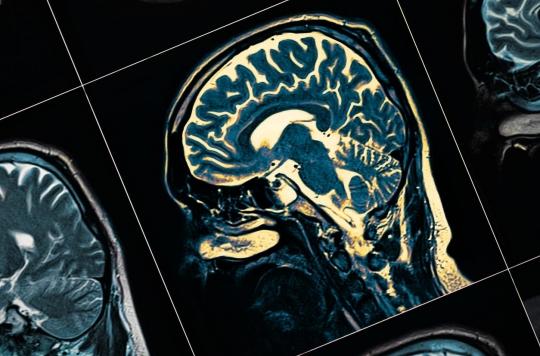A complex and inherited mental disorder, schizophrenia is linked to a mutation in the PCDHA3 gene that disrupts brain function, a new study reveals.

- The study, conducted on a population of Ashkenazi Jews, highlights a genetic mutation never identified so far in the development of the disease.
- This variant affects the PCDHA3 gene and blocks this normal functioning of protocadherin, a protein involved in creating intercellular connections in the brain.
Affecting more than 21 million people worldwide, schizophrenia is a mental illness caused by disturbances that affect certain functions of the brain, including the thinking, emotions and behavior of people who have it. Symptoms include hallucinations, delusions, disturbances in thought, feeling, behavior, perception, and speech. They have a significant impact on the social and daily life of people who are affected.
Several previous studies have already highlighted the hereditary nature of schizophrenia: the disease, due to heterogeneous genetic variations, is often transmitted from one generation to another. This is called genetic heterogeneity: different abnormalities of the DNA segments present in the chromosomes can lead to schizophrenia. But until now, researchers have failed to isolate individual genes that may contribute to the development of this mental disorder.
In a study recently published in the journal Neuron, researchers from the Feinstein Institute for Medical Research and Columbia University have managed to find a new genetic mutation strongly linked to schizophrenia. Their work could pave the way for new treatments.
A study conducted on Ashkenazi Jewish volunteers
This discovery was made possible by the special genetic characteristics of the samples studied by the team of Dr. Todd Lencz, professor of behavioral sciences at the Feinstein Institute. The research team conducted their work on schizophrenic patients and healthy volunteers from the Ashkenazi Jewish population, which is made up of few members around the world. This means that the genetic diversity of its population is low, which facilitates genetic studies.
The researchers took a sample of 786 schizophrenic patients and 463 controls, analyzing their genomes for new variants that may play a role in the disease. After screening for previously identified risk factor genes, schizophrenic patients showed mutations in a set of previously identified genes, thus reinforcing the data already available.
A genetic mutation that disrupts brain connections
But the researchers also discovered a new mutation: a single nucleotide change in a gene called PCDHA3 (Protocadherin Alpha 3), which produces a protein that plays a role in creating intercellular connections in the brain.
This genetic mutation directly blocks the action of this protocadherin protein, identifying a possible mechanism by which the symptoms of schizophrenia appear.
“In addition to our main results regarding PCDHA3 and related genes, we were able, thanks to the unique characteristics of the Ashkenazi population, to reproduce several previous results regarding schizophrenia, despite relatively small sample sizes, explains Dr. Lencz. In our study, we demonstrated that this population represents a smart and cost-effective strategy to identify disease-related genes. Our results allow us to focus on a new aspect of brain development and function in our quest for new treatments for schizophrenia.”
From now on, the research team wishes to carry out larger studies, on less isolated populations, to confirm these results.

.

















